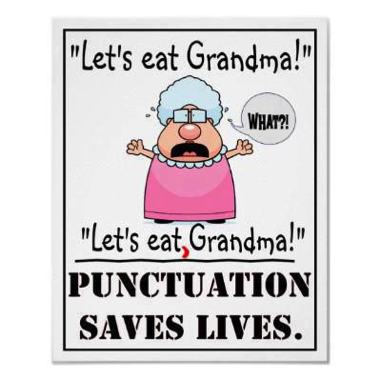
Writing it Right
Why spelling and grammar still matter
Proper Grammar Matters!
Is it really THAT important for your website, blogs and social media pages to be free of grammar and spelling errors?
After all, it seems that very few people on the Internet even bother trying to use the correct terminology, spelling, tense or punctuation in their status updates, posts, blogs or even online ads!
Actually, that's a good enough reason right there! You can stand out from the crowd, just by double checking your spelling and grammar before posting something online.
The sad reality is, people don't generally notice good spelling and grammar, but they almost certainly notice when you get it wrong.
How many times have you been reading a blog or someone's Facebook post and given up completely because it was just so confusing, unclear and riddled with mistakes? Or pointed out those mistakes to everyone in the vicinity so you could all share the joke about someone's really bad typo?
Everyone makes the occasional typo. No one is exempt from that rule!
Plus, everyone has certain words or grammar rules that they continually struggle with, whether it's remembering the difference between it's and its or forgetting when exactly i before e applies or never knowing when words starting with w require an h, we all have something that trips us up.
But that doesn't mean we shouldn't try to get it right more often than not.
Think about that last post you read that was full of errors. How quickly did you lose all faith in the writer's credibility? After the first error? The fifth? The fifteenth?
At what point did you just give up and move on to the next article, realizing that whatever information you might gain was simply not worth the effort of trying to decipher the actual meaning behind the words?
Tips for getting it right:
- Use spell check. But remember that spell check doesn't know everything. For example, there are differences between US and Canadian spellings - and spell check is often American!
- Also keep in mind that spell check may not help if you use the wrong word but spell it correctly, such as with compliment and complement. These two words look alike and sound alike but have very different meanings. (When someone compliments you, they are telling you how great you are. When someone complements you, it means you work well together.)
- Look up words you don't know before using them. www.dictionary.com is a quick way to check the definition and spelling of a particular word
- Take the time to figure out what all those squiggly green and red lines in your copy actually mean. You don't always have to do what spell check/grammar check says, but it's a good idea to see if they might have some good suggestions to improve your writing
- Get someone else to proofread your copy. There comes a time when you really can't see the forest for the trees, so to speak. A fresh perspective and a fresh set of eyes is always welcome
- Don't try to impress people by using big, fancy words or complicated sentence structure. Just be yourself. Try to write like you talk.
- Avoid speaking in the passive voice. Instead, use active sentences. Consider the difference between saying 'The phone was answered by Bob' and 'Bob answered the phone'.
- Trim the fat! As much as you probably love the sound of your own voice, you would do well to remember the expression 'Less is more'. When it comes to writing, it usually pays to keep things succinct.
- Edit your work. The secret to great writing is actually re-writing. And then re-writing some more!
Like it or not, grammar and spelling do matter. People judge the value of your message by the words you use and how you use them, whether it's a Facebook status update, an ad campaign or an e-mail to a client.
